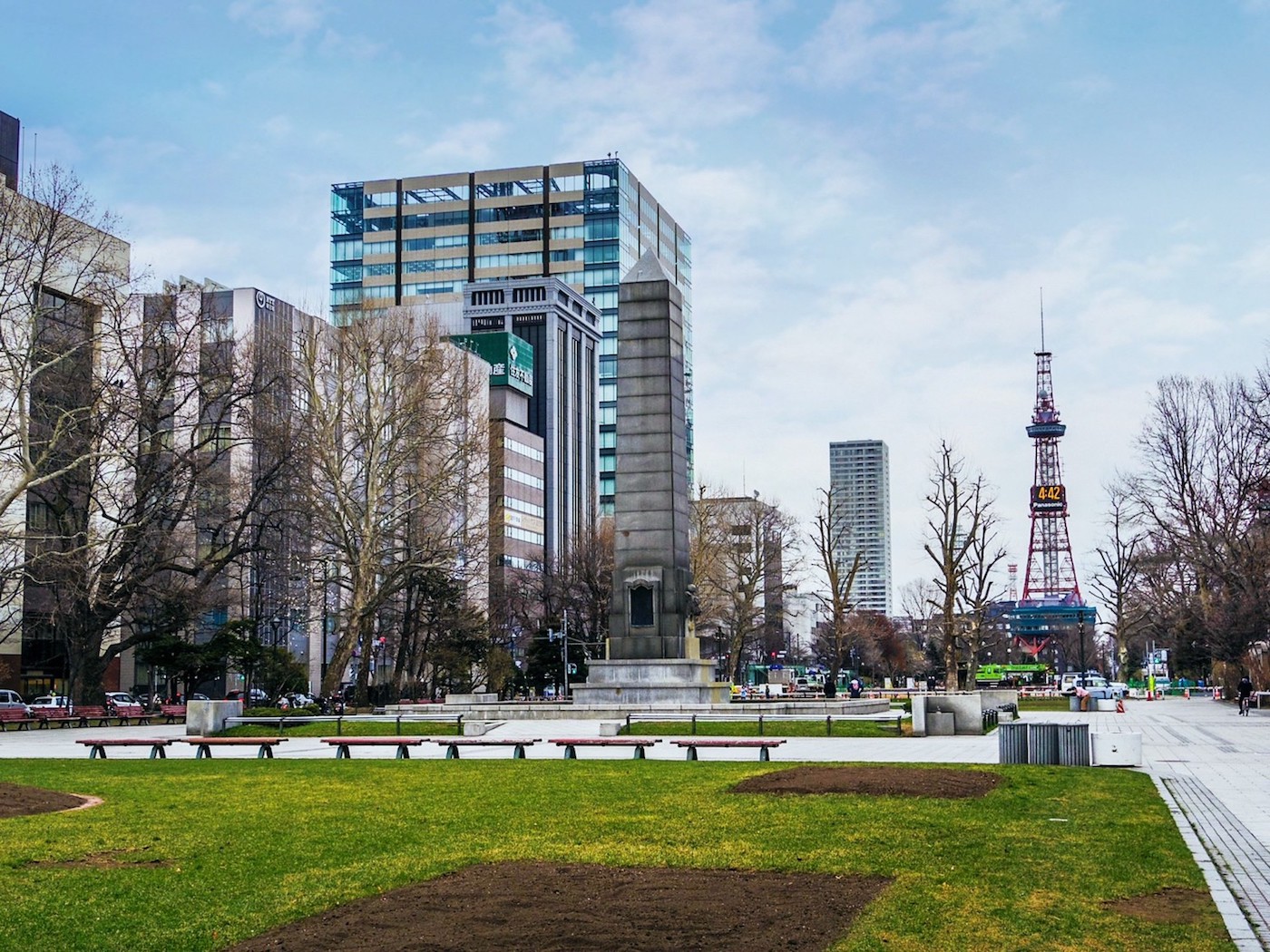
(この記事は、『札幌英会話ニュースレター #12」の英語訳です。)
Welcome Foreign Tourist
We Have Many Resort
Short Stay Condminium
Long Stay Cottage
Niseko Guesthouse
Otaru And More!!
No Commission X
I happened to come across this English sign on the window of a real estate agency that recently opened on the main station road in Sapporo. If you took the phrases and words on this sign and translated them back into Japanese, this is roughly what you would get:
外国の観光客、あなただけ、ようこそ。たくさんの行楽地を一つだけ持っている。短期滞在。コン??ミニアム。長期滞在。一つのコテージ。ニセコ。一つのゲストハウス。小樽。それからもっと!! 手数料はない。
(Gaikoku no kankoukyaku, anata dake, youkoso. Takusan no kourakuchi o hitotsu dake motteiru. Tanki taizai. Konminiamu?! Chouki taizai. Hitotsu no koteeji. Niseko. Hitotsu no gesutohausu. Otaru. Sore kara motto! Tesuuryoo ha nai.)
People who understand English would take one look at the English in this sign and go, like, “What the heck?!”
Why? Well, when using English, the plural form is indispensable. Grasping the full importance of the plural form can be pretty difficult for a lot of native Japanese speakers, because the Japanese language doesn’t really have one. However, English-speaking babies are able to use the plural form in simple phrases like “one boy, two boys; one man, two men; one girl, two girls; one woman, two women….” If you counted all the nouns used in everyday English conversation and writing, I think you would probably end up with more plural nouns than singular ones.
When one sees the singular phrase “foreign tourist,” one imagines a single traveller who has just arrived from another country. So if you’re trying to attract more than just one person to your business, you should use the plural form “foreign tourists” instead.
Since most stores, restaurants and businesses offer or provide large quantities of the same items, the sentences in English signs in countries proficient in English generally contain plural words and phrases. For example, one uses the phrase “short stays” for 短期滞在 (tanki taizai) and “long stays” for 長期滞在 (chouki taizai).
The English word “resort” means 行楽地 (kourakuchi). So the sentence “We have many resorts” would mean 弊社が行楽地を沢山持っている (Heisya ga kourakuchi o takusan motteiru, ‘Our company operates many resorts.’) And コンドミニアム in English isn’t ‘condminium’ but ‘condominiums.’
Creating an English window sign and getting it up requires a lot of time and energy, so wouldn’t it normally make sense to check and see if the English phrases and sentences you’re using are actually okay? I appreciate the fact that more people are making English signs in order to reach out to foreigners, but some of these attempts seem rather flaky. If you’re making a sign in English, please check your spelling and show the sign to a native English speaker to see if it looks good before putting it up.
At Mike’s English Class Sapporo, in addition to providing proofreading and editing services, I give one-to-one lessons in English conversation, business English, English for travel, academic writing, and preparation for English tests including the TOEIC exam.
Foreign Tourists Welcome!
Find Accommodations Here!
Both Short and Long Stays
Condominiums & Cottages
Guesthouses and B&Bs
Places to Stay
in Niseko and Otaru
Fee & Commission Free! √
At South 8 West 4 in Chuo Ward, Sapporo
Sapporo English Conversation Newsletter
Related Articles
Improving Your English Speaking Skills
Sapporo English Signs Lost in Translation ~ Grammar Lesson #13


